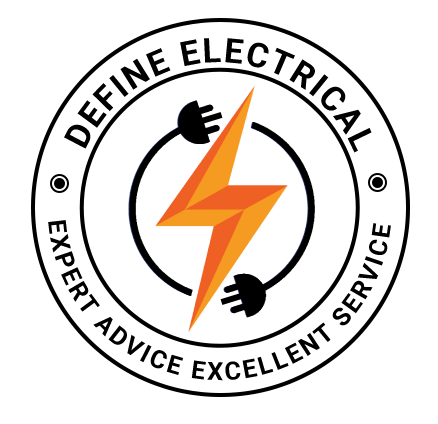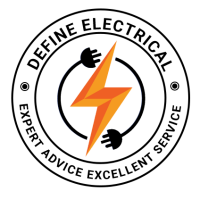Electric vehicle (EV) ownership is on the rise as more people look for eco-friendly and cost-effective ways to travel. With the increasing adoption of EVs, the demand for residential EV chargers is also growing. Installing an EV charger at home provides unparalleled convenience, allowing you to charge your vehicle overnight and start each day with a full battery. However, using an EV charger at home comes with safety responsibilities. In this blog, we’ll outline key safety tips for using your residential EV charger effectively and safely.
Choose the Right Electrician for Installation
One of the most crucial steps in ensuring the safety of your residential EV charger is selecting the right professional for installation. A certified and experienced electrician will understand how to handle the electrical load, ensure proper wiring, and follow all safety codes.
If you live in Edmonton or the surrounding areas, it’s wise to choose a service that offers both emergency and regular electrical support for residential and commercial needs. The best electricians in Edmonton are not only skilled but also reliable, offering peace of mind when it comes to the safety of your EV charging setup.
Ensure Proper Installation
Even if you’ve selected the best electrician, it’s important to confirm that the installation meets specific safety standards. Here are key points to check:
- Dedicated Circuit: Your EV charger should be installed on a dedicated circuit. This prevents other electrical devices from overloading the system, reducing the risk of electrical fires.
- Quality Equipment: Use high-quality and certified charging equipment that meets safety regulations.
- Outdoor Setup: If your charger is installed outdoors, ensure it has weatherproof protection to prevent water damage and electrical hazards.
Regular Inspection and Maintenance
Once your residential EV charger is installed, regular inspections and maintenance are essential for continued safe use. An electrician should inspect your charging equipment and electrical panel annually or if you notice any irregularities, such as flickering lights or unusual sounds.
Regular maintenance can prevent problems such as overheating or worn-out wiring. If you suspect an issue, do not attempt to fix it yourself. Instead, call an experienced residential electrician who can assess and resolve the issue safely.
Follow Manufacturer’s Guidelines
Every EV charger comes with specific guidelines for safe use. Always read and follow the manufacturer’s manual to avoid voiding warranties and compromising safety. These guidelines usually cover:
- Recommended charging speed: Ensure you use the appropriate power level for your vehicle and charger model.
- Connector handling: Properly handle and store the charging connector to avoid damage and electrical exposure.
- Charging in suitable environments: Avoid charging your vehicle in damp or poorly ventilated spaces unless your equipment is specifically rated for such conditions.
Ensure Proper Cable Management
Improper cable management can lead to tripping hazards, damage to the charging cable, or, worse, electrical shorts. To avoid these issues:
- Store the cable properly when it’s not in use.
- Avoid running the cable across driveways or walkways, where it may be run over or stepped on.
- Inspect the cable regularly for wear and tear. If you notice fraying or other damage, replace the cable immediately to prevent electrical shocks or fire hazards.
Protect Against Power Surges
Power surges can damage your EV charger and pose safety risks. Installing a surge protector can help safeguard your charger from unexpected power spikes. For added safety, consider consulting an experienced residential electrician to assess your electrical panel and install a surge protection device.
Stay Alert for Overheating
EV chargers are designed to be safe, but overheating is still a possibility, especially if the charger or your vehicle’s battery is malfunctioning. If you notice that your charger is unusually warm or hot during operation, stop charging immediately and call a qualified electrician to assess the issue.
Know How to React in Emergencies
In the event of an electrical emergency related to your EV charger, it’s essential to act quickly but safely. Here’s what to do:
- Cut the power: Switch off the charger and, if necessary, the main power supply to prevent further damage or danger.
- Call an emergency electrician: Contact a licensed professional who specializes in residential electrical services and can address the situation promptly.
For residents of Edmonton, having access to top-rated emergency electricians is essential. Reliable services can address urgent situations like electrical fires, power outages, and equipment malfunctions, ensuring safety for you and your family.
Invest in Smart Charging Solutions
Many modern EV chargers come equipped with smart technology that monitors charging conditions and alerts you to potential issues. Investing in a smart charger with built-in safety features can reduce the risk of electrical hazards and improve the overall efficiency of your charging setup.
Keep Children and Pets Away
Children and pets are naturally curious, which can lead to unintended accidents if they come into contact with the charging equipment. Always ensure the charging area is secured and out of reach from young kids and animals.
Choosing the Best Electricians in Edmonton
For safe installation, maintenance, and emergency electrical services, choosing the right electrician is critical. The best electricians in Edmonton offer both residential and commercial services, equipped to handle installations, repairs, and emergency situations efficiently. They provide certifications, prioritize safety, and have strong reputations backed by customer testimonials.
Whether you need a new residential EV charger installed, an inspection, or emergency assistance, qualified electricians in Edmonton ensure your home’s electrical system remains in top shape. Their expertise can make a significant difference in the performance and safety of your EV charger and overall electrical setup.
In summary, using your residential EV charger safely involves choosing a skilled electrician for installation, adhering to maintenance practices, and being proactive about safety precautions. Always stay informed and prepared to keep your EV charging experience smooth and secure.


